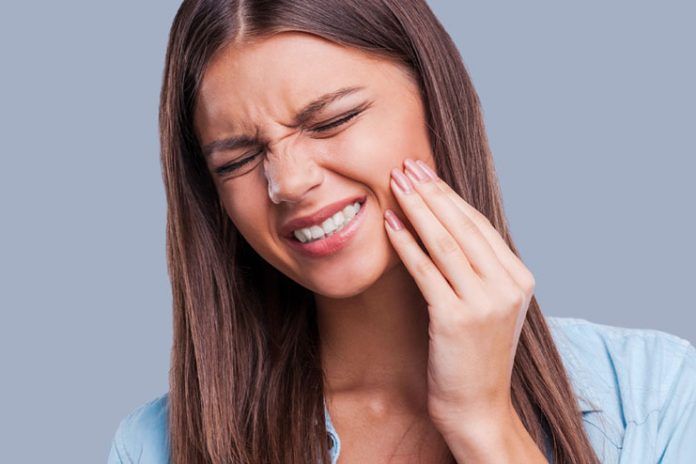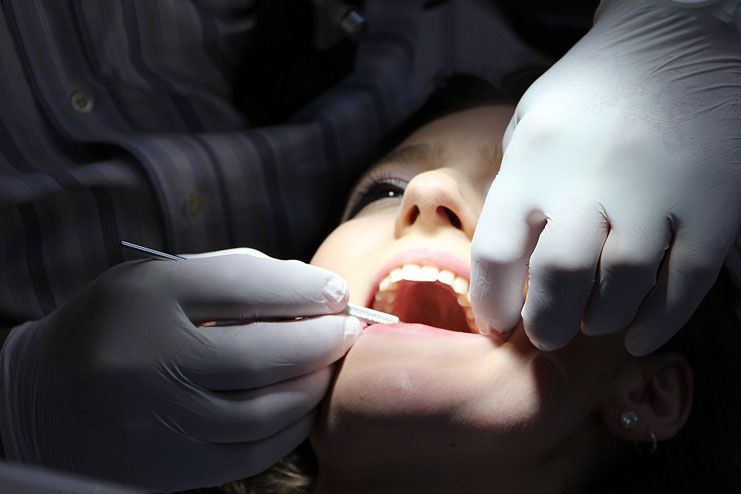Affiliate Disclaimer
Some links in this article are affiliate links. We may earn a small commission if you make a purchase through these links, at no extra cost to you. We only recommend products we find useful to our readersMost of us ignore a few signals sent by our bodies and end up with huge suffering. Toothache is one such discomfort ignored at times, until it flares up. Many times, toothache is the only reason to visit the dentist, while it should not be the case. Afterall, maintaining clean and healthy teeth is imperative to maintain overall health. To learn more about toothache, its causes, treatment and remedies, read through this Health Spectra post.
What Causes Toothache?
The pain experienced in or around a tooth is a toothache, which can be caused due to many reasons. The toothache is mainly caused due to
- Tooth decay
- Tooth fracture
- Abscessed tooth
- Damaged filling
- Repetitive motions of the teeth
- Removal or eruption of teeth
- Bruxism (also commonly referred to as “teeth grinding”)
- Unusual bites
- Infected gums
Symptoms of Toothache:
Tooth pain may be constant, throbbing, or sharp. Pain due to the toothache may affect jaws and teeth. In some cases, pain may show up only when the pressure is applied on the teeth.
Other accompanying symptoms include:
- Tooth swelling
- Headache
- Fever
- Drainage from the infected tooth
- Foul-odor from the mouth.
- Foul-tasting drainage from the infected tooth
When To Visit A Dentist About Toothache?
It is important to see a dentist as early as possible if:
- You are suffering from a toothache for more than one or two days or
- If the toothache is getting severe without break or
- You also suffer from fever, ear pain, pain when widely opening mouth, etc.
Note: It is extremely important to correctly identify and treat dental infections to avoid spreading to other body parts like the skull, face and even the blood stream.
What To Expect After Visiting The Doctor For Toothache?
After visiting the dentist regarding the toothache,
- You will have to brief out your medical history to him/her.
- The dentist conducts a physical examination of your mouth and teeth.
- You will then have to answer questions about your tooth ache like when has it begun, how severe it is, what makes the pain better or worse and so on.
- The dentist would examine your mouth parts like gums, teeth, jaws, mouth, neck, throat, etc.
- If required, you may have to get some tests done and X-rays taken.
Once all the results of the tests are ready, and the examination is over, the treatment begins.
Treatment For Toothache:
Following the evaluation of all the tests, the dentist begins treatment based on the cause for toothache. For example, if the toothache arises due to a cavity, the dentist fills in the cavity. In case the ache is due to some infection in the tooth nerve, a root canal may be needed.
The doctor may prescribe an antibiotic, if the bacterial infection has spread to the inner layers of the mouth/teeth. The pain and inflammation associated with the toothache could be reduced through phototherapy with a cold laser.
- Jaw or dental pain can be treated with antibiotics and analgesics.
- A follow-up is usually arranged.
- Also, antipyretics are prescribed in case of fever, swelling in jaws or gums.
All the dental procedures are done in stages. Additional procedures, if any, may be planned by the dentists at the most appropriate times for the patients.
Home Remedies And Self-care At Home To Cure Toothache
A handful of home remedies are available for temporary toothache relief. However, all of those may not be suitable for everyone. Here we listed a few. Pick them with discretion:
- Opt for over-the-counter (OTC) pain medications such as paracetamol or ibuprofen. Take them as directed on the package, until a dental appointment is fixed. If the pain or problem is found in the jaw each time you open your mouth wide, it is called the temporomandibular joint (TMJ), and OTCs or prescription painkillers may help relieve the pain.
- Avoid too hot or cold foods to lessen the pain.
- Biting on some cotton wool soaked in clove-oil may help with pain relief. Clove oil is available at most pharmacies.
- An antiseptic containing benzocaine may come to rescue in the absence of clove oil.
- Rinse mouth thoroughly with lukewarm water to get temporary relief from a toothache.
- To avoid gum burning, refrain from applying aspirin right on the gums.
- Salt, pepper and garlic, all have antibacterial, analgesic and anti-inflammatory properties and thus are highly effective.
- Use an ice pack or ice cubes to alleviate tooth pain. Hold the pack on your cheeks adjacent to the painful areas. They work by numbing nerve endings.
Note: Do not use too many OTC oral rinses to lessen the chances of exacerbate or prolong problems.
Some Facts About Toothaches and Tooth Decay
- Toothache affects almost everyone at some degree at some point in our lives.
- Though tooth decay can affect people of any age, seen usually in children and young adults.
- Also, tooth decay is the most common cause of tooth loss in younger people. Elderly people are also prone to toothaches and tooth decay, mostly due to the consumption of multiple medications.
Hence, would it not be wiser to prevent tooth related issues as much as possible to rest assured?
Now, Can Toothache Be Prevented?
Yes, good oral hygiene practices can prevent toothaches, as most of them are a result of tooth decay. Toothaches would be bothering, make people feel low and reduces productivity. Keep toothaches at bay with right oral hygiene.
Prevent toothaches by,
- Brushing regularly, twice a day
- Using fluoride-containing toothpaste
- Flossing at least once a day
- Arranging regular dental check-ups
- Going for regular dental cleaning and scaling
- Avoiding foods high in sugars and starch
- Asking dentists for fluoride applications and sealants
- Making the right lifestyle choices
- Refraining from smoking and alcohol
Besides following a healthy lifestyle for good dental practice, ensure not to overdo anything. As, anything too much is too bad. Ensure prompt and routine follow-up dental appointments to maintain good dental health.
To conclude, following good dental hygiene, such as brushing with a fluoride toothpaste, flossing, and routine check-ups by the dentist, helps prevent dental problems like a toothache.
More Interesting Articles:
- Natural Remedies on How to Get Rid of Cavities
- Home Remedies for Shaking Teeth
- Does Toothpaste For Acne Really Work? How Effectively it Removes Acne





















